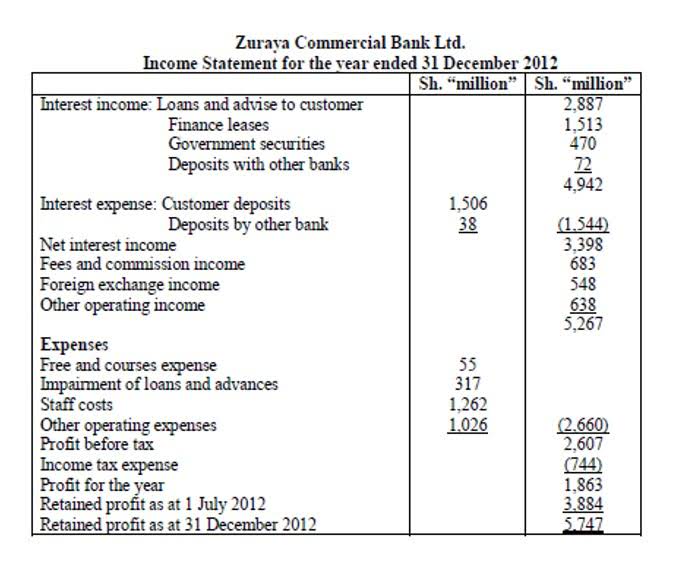
For instance, some fee agreements will specify that the retainer fee is immediately collected in full to secure the services of an attorney. In a personal injury case, as noted above, the attorney may return the amount of the retainer to the client if the attorney succeeds in winning a payment of money damages for the client. In this case, the retainer is more like an advance from income statement the client to cover costs during the lawsuit. The retainer fee agreement should be made between the attorney and the client before the case actually begins. In other cases, attorneys charge clients for their services on an hourly basis.
Fenza Legal Services

In exchange for this fee, the firm makes it a priority to be available for you to discuss whatever legal questions or issues arise for that month. This means how your legal retainer is calculated and what services you are paying for. You might, for example, have an attorney provide an hourly list of different services they offer and then base the amount on the average number of hours for your type of situation. It is important to note that if the attorney does not prevail in the case, then the client will often not be on the hook for their legal fees. However, reviewing the contingency fee agreement is important to ensure that you will not be on the hook for any other fees if the case is unsuccessful.
Is It Possible to Recover Attorney’s Fees?
The retainer is typically deposited into a trust or escrow account and used to pay for legal services as they are rendered. The attorney will bill against the retainer, deducting fees and expenses as they accrue. Once the retainer is depleted, the client may be required to replenish it to continue receiving legal services.
How Do Retainers Work for Lawyers?

A lawyer retainer fee varies widely based on factors such as the lawyer’s experience, location, and the complexity of the case. For instance, in family law, retainers typically fall between $2,000 and $5,000. A retainer fee secures a professional’s future services, often non-refundable and used to reserve their availability.
How Do Retainers Work For Lawyers: A Comprehensive Guide To Understanding Legal Fees

Particularly coveted law firms may also ask for a general retainer to ensure the availability of their services. A legal retainer agreement is a document that specifies you will have an attorney-client relationship after you pay the retainer fee for a specific period. During this time, the contract lawyers might do legal work or be there to answer legal questions you have, like general information purposes. The software allows lawyers to effortlessly accept secure online payments for retainer fees.

Legal payment processing solutions are perfect softwares that lawyers can use for accepting recurring payments from clients. Lawyers and attorneys often suffer from late payments or no-payment situations. In this case, having a proper written document or Accounting for Churches agreement in place can be very helpful. It is essential to have a retainer agreement to outline all the terms and conditions regarding payment. Yes, clients can often negotiate the terms of the retainer agreement, including the amount of the retainer, how it will be applied, and whether it is refundable.
- While not legally required to be in writing, most lawyers prefer a signed retainer agreement to ensure clarity.
- You pay an upfront fee called a retainer fee, kind of like a down payment.
- The retainer fee agreement should be made between the attorney and the client before the case actually begins.
- When not working or writing, she enjoys watching documentaries about true crime events.
- When a prospective client pays a retainer fee, they are essentially reserving the lawyer’s time and legal expertise, confirming that said attorney is available to work on their case when needed.
- Your attorney must disclose to you up front if you will have to pay a retainer, what the amount is and what the purpose of the retainer fee is.
- It is always wise to ask prospective lawyers to fully and clearly explain the scope of their legal services and their fee structures.
Small Businesses
One way to make divorce and custody disputes easier in Colorado is to understand all of the specific terms used. In the end, the retainer agreement determines how much is owed to the lawyer, any disagreements that may occur with the merit(s) charge, and the disposition of all documents during the transition. The amount of the retainer can vary depending on factors such as the complexity of the case, the attorney’s experience and reputation, and the anticipated amount of work required. It is usually discussed and agreed upon between the attorney and the client before any legal work begins. Replenishing the retainer is an important step in the lawyer-client relationship, especially if the initial retainer amount is depleted before the case is resolved.
What is a retainer fee for a lawyer?
If a lawyer spends less time on the matter than estimated, the additional amount would be refunded to the client. The retainer might be $2,500 if a lawyer estimates the matter will take them 10 hours. If you only spend two hours on the matter in the first month, you reduce the retainer by $500, making the remaining balance $2,000. The next month, the balance would be $750 if the lawyer works five hours.
- The attorney may learn information that leads them to think they cannot perform the service the client needs.
- A lawyer retainer pertains to a client’s upfront payment to an attorney or law firm.
- In this article, we’ll explore what a lawyer retainer is, how it works, and why attorneys should use it at their firm.
- Once the lawyer renders the services, they transfer the funds from a client trust account into an attorney’s operating account.
- This arrangement can be tailored to suit the complexity and unpredictability of a case, offering a customized approach to billing.
- Yes, clients can often negotiate the terms of the retainer agreement, including the amount of the retainer, how it will be applied, and whether it is refundable.
Now, if your case takes a lot more time than originally anticipated by your counsel, you might get a request for an additional retainer deposit along the way, or a bill at the end of your case. Similarly, if your case takes less time than anticipated and there is money left over, you should receive a refund of those funds. Retainer work is NOT flat fee work, and the lawyer has to account for the usage of your retainer. If the attorney does not account for the usage of your retainer, or does not refund the remainder of your retainer, they are retainer fee in violation of our Rules of Professional Conduct. Conversely, cases where the lawyer charges a contingency fee do not require a retainer. Typical situations include personal injury claims, car accidents, slip-and-falls, and medical malpractice.
